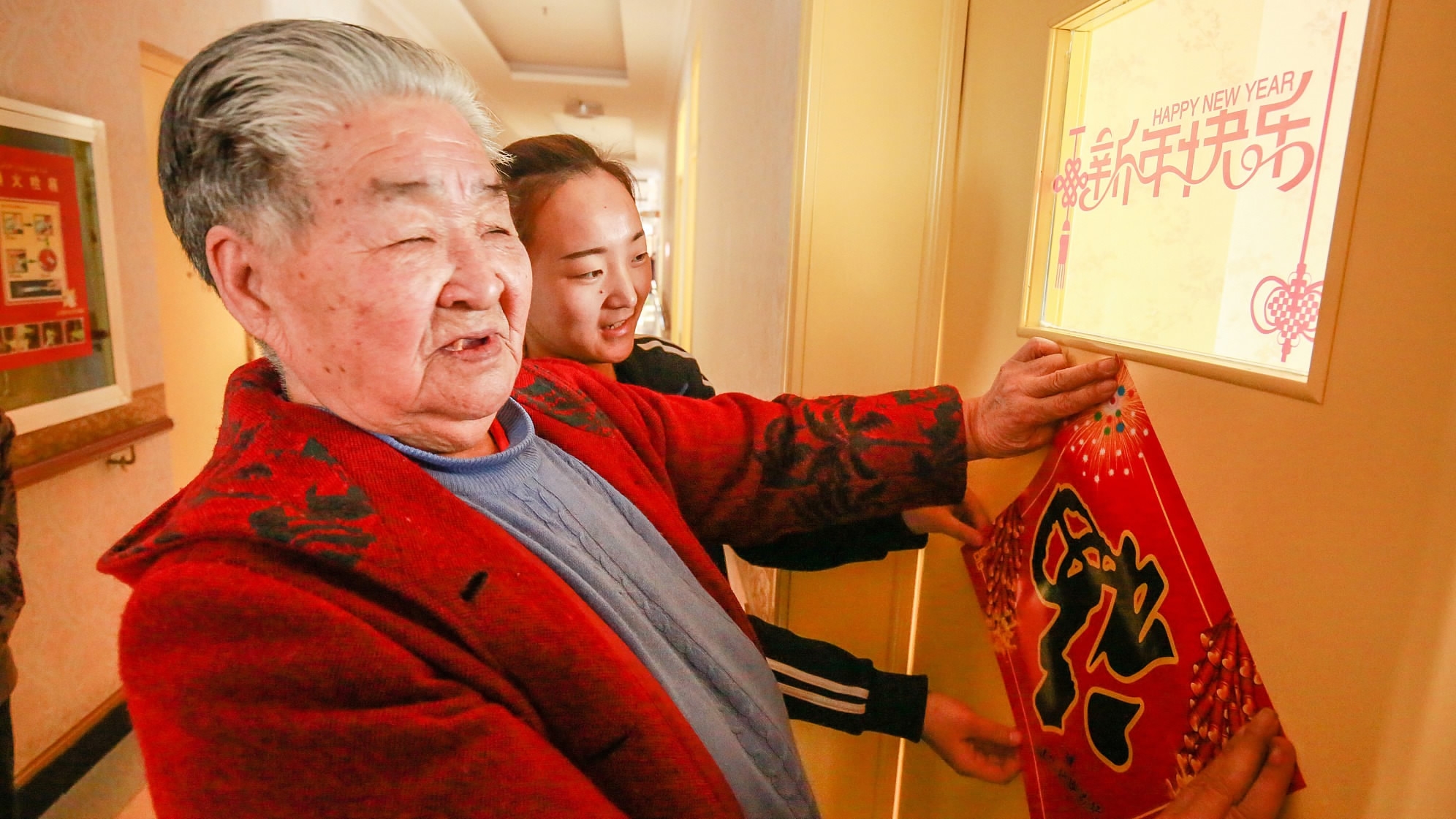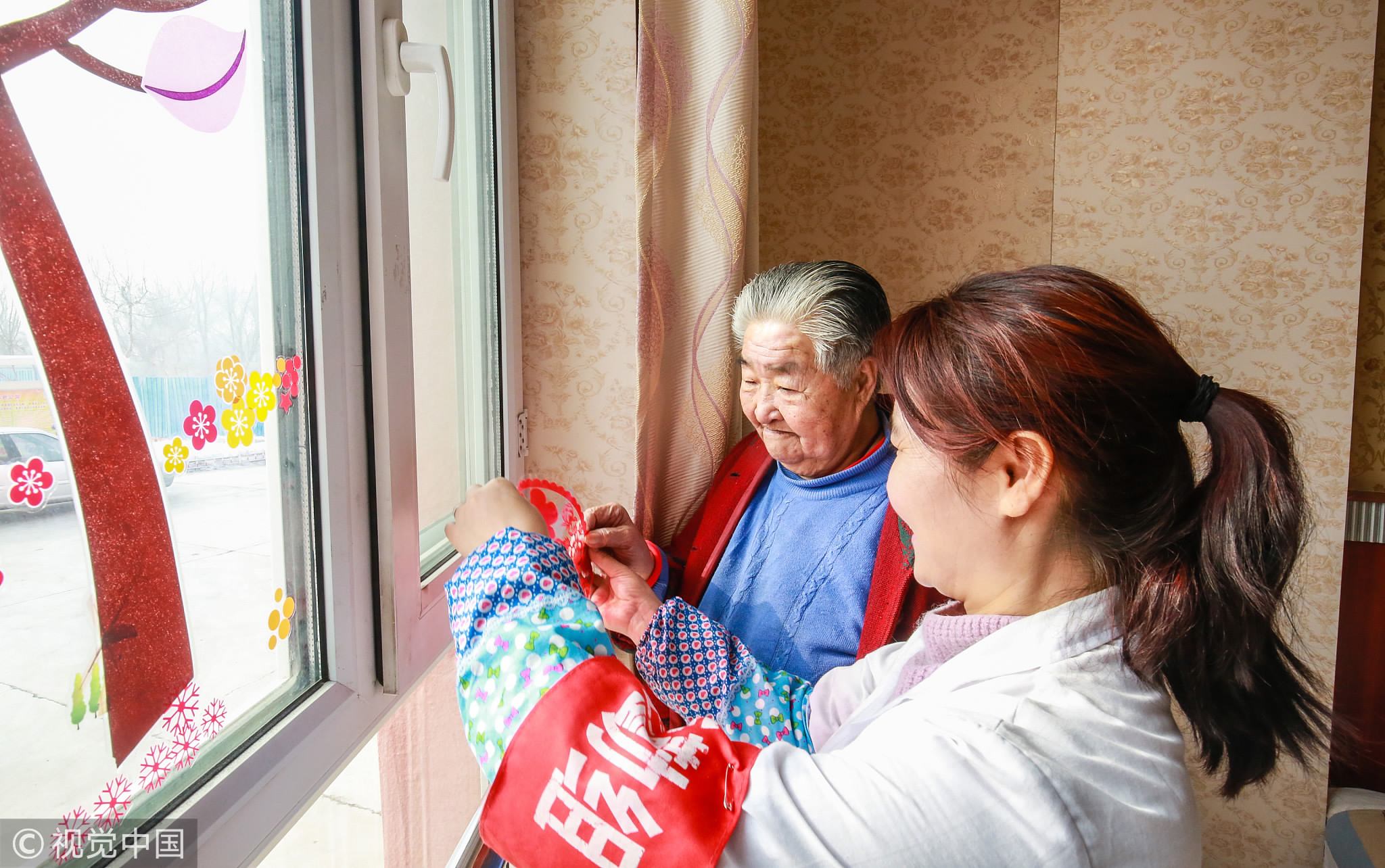
China
14:02, 17-Feb-2018
Flew the coop: How empty-nesters celebrate their spring festival
CGTN

Each year around the Spring Festival, billions of people travel across the breadth of China to reunite with their family. However, there are still lots of people staying behind in the big city or aboard during the festival.
How their parents – nicknamed empty-nesters in China – experience the national family reunion if their children do not go back home?
Actually, gone are the days of empty-nesters living alone and staring wistfully at their kids’ empty rooms. Instead, some of them have a full social life.

Senior people living in Social Welfare Institute preparing for the lunar festival accompanied by volunteers from local communities. /VCG Photo
Senior people living in Social Welfare Institute preparing for the lunar festival accompanied by volunteers from local communities. /VCG Photo
52 empty-nesters, living in an old person's home in Beijing, celebrated their Lunar New Year's Eve by making dumplings, singing and writing spring festival scrolls on Feb. 15, accompanied by millennial volunteers at local communities.
Since the average age of these senior people is 84, including three who are over 100, the party took less than an hour.
Hou Shulan, 84 years old, told Xinhua News that some of these volunteers are as the same age as her granddaughter, who has studied abroad for ten years. She is so glad to be called grandma by these volunteers, which reminds her of her granddaughter.
At 9:15 p.m., Zhao Jin, the nurse, reminded these elders to go to sleep.
“Too much excitement can lead to a sense of loneliness afterwards,” he told the Xinhua News.
In some other cities, there also are several companies aiming at taking care of seniors and helping them occupy themselves instead of living alone in an uninhabited room and sitting in front of the television.
Mr. Zhang and his wife are living in the Second Social Welfare Institute in Hangzhou, whose daughter is working in the healthcare industry in the US now after graduating from Peking University, China's top university.
“We really enjoy our time living here since there are lots of events. Hairdressers visit us twice a month and we do not need to go to the haircut salon anymore. The institute hosted a party for us last week, we could sing, dance and making dumplings,” Mr. Zhang told the Zhejiang News.
According to statistics from the National Bureau of Statistics of China, there were about 230 million people age 60 or older in China at the end of 2016, accounting for 16.7 percent of the total population. About 51.3 percent of the elderly were "empty-nesters," who live apart from their children.

SITEMAP
Copyright © 2018 CGTN. Beijing ICP prepared NO.16065310-3
Copyright © 2018 CGTN. Beijing ICP prepared NO.16065310-3